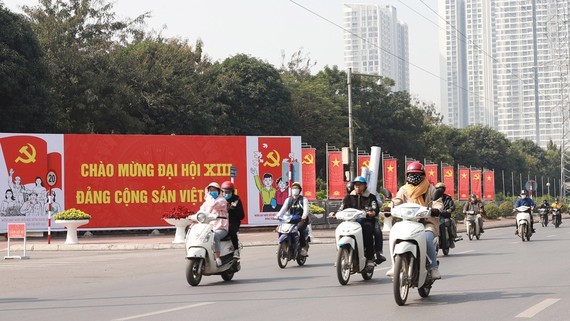
The article lauded Vietnam among few countries in the world that have been successful in preventing the outbreak, saying soon after the onset of the health emergency, authorities put in place strict measures to control the spread of the virus, which helped keep infection number under control throughout the year.
According to the US-based Johns Hopkins University, the country has so far recorded 1,544 COVID-19 infections and 35 deaths.
The Vietnamese Government’s successful handling of the health crisis has had a positive effect on the economy. Vietnam is one of the few countries that managed to post growth in 2020, expanding by 2.9 percent in a year while many economies worldwide recorded massive contractions.
Additionally, consumer confidence and optimism also remain high, according to the London-based market research firm Nielsen.
The export-oriented nation is becoming increasingly important to the globalised economy and international supply chains, the article highlighted, saying Vietnam has emerged as a major trade partner for Germany and the European Union (EU) as a whole since the EU-Vietnam Free Trade Agreement (EVFTA) came into force in August 2020.
Vietnam also organised the virtual signing ceremony for the mammoth Regional Comprehensive Economic Partnership (RCEP) agrement, creating the world’s largest free trade area.
According to DW, the Southeast Asian country will hold the 13th National Party Congress from January 25 to February 2 to select new leaders of the Communist Party of Vietnam and outline policies for the next five years, of which COVID-19, trade and climate change will be in top priorities.
Regarding the country’s challenges, Carl Thayer, a political scientist emeritus at the Australian University of New South Wales, said Vietnam’s energy security is the most pressing problem for the next five years. Besides, the country needs to resolve numerous longstanding tariff and trade issues with the US - the largest export market of Vietnam.
He also expressed his optimism that Vietnam will reach agreement with the US on many issues, and the country is likely to resume double-digit economic growth within the next five years, particularly if it makes clever use of the signed new-generation free trade pacts.
Meanwhile, Nguyen Phuong Linh, deputy director of the consulting firm Control Risks, said reforms top the list of the measures needed to ensure robust economic growth and political stability.
Journalist Mike Tatarski who lives in Ho Chi Minh City, for his part, mentioned the urgent need to modernise infrastructure in the context that Vietnam has been a favoured destination in the global production chain.
Vietnam should pay due heed to climate change, he said, adding it is necessary for the country to develop agriculture in a more stable fashion.
























